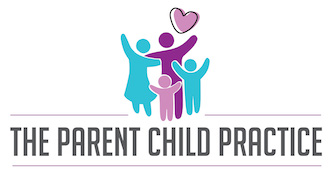Children are capable of learning incredible things. Maybe you’ve been in awe of your child’s imagination before or found yourself surprised by some of the interesting and curious questions they ask.
As a parent, of course, you want your child to be happy and to achieve great things. To do that, it’s important to encourage a growth mindset, rather than a fixed one.
A growth mindset is the idea that your children’s abilities and even their intelligence (their crystalized intelligence, which is the accumulation of knowledge, facts, and skills) can be improved through different strategies. A fixed mindset, on the other hand, is the belief that intelligence levels and the ability to grow are stable and can’t really be changed.
So, how can you introduce a growth mindset to your child, and encourage that as they develop?
Tell Your Child How Their Brain Works
Most kids are naturally curious, and parents don’t think to talk to them about how their brain works. If a child knows that their brain is a living thing that can continuously learn and grow as they go through life, imagine how much more they’ll want that to happen.
You don’t have to know much about how the brain works, especially not the scientific side of things. All you need to do is make sure your child knows that the brain can continuously make new connections. And that this means they have the ability to learn new things throughout their life.
When a child learns that their brain will continue to learn and grow, they’re more likely to let that happen, rather than accepting that they can only learn or know so much. I often tell kids in my work with them that it is important to “work the muscle in their brain” and the best way to do that is to learn new or challenging things.
Here is a short video clip for kids about how challenges grow the brain:
Be a Growth Mindset Role Model
Your child looks up to you and watches almost everything you do. Whether you realize it or not, your actions and your words are influencing them on a daily basis.
To help your child develop a growth mindset, you should model one, yourself. Instead of giving up on something and saying it’s too hard, choose to say that you just need to keep working on it or that you’ll get better. You can play a huge part in the development of your child’s growth mindset just by practicing it yourself.
Praise Your Child’s Effort
We live in a world that is very focused on outcomes. Maybe your child didn’t win their baseball game. Or maybe they didn’t ace their math test. But that’s okay. Instead of focusing on the outcome, focus on the process.
For example, if they lost the big game, you can still praise them for how well they played and how hard they’ve practiced. Or if they didn’t do well on a test, praise them for all the studying they did. If a child is building a Lego set and it crashes, praise them on how hard they worked and how they have the opportunity to try again to improve it during the rebuilding process.
If children learn that only the outcome matters and not the effort behind it, they’ll never think they can do more or try harder to change that outcome.
Talk About Your Child’s Inner Voice
One of the best ways to encourage a growth mindset in your child is to help them better recognize their “inner voice.”
Everyone can be their own worst enemy, even children. That’s why it’s important to teach your child how to recognize negative self-talk from an early age. If you do, they’ll develop the skills to fight back against it with positive self-talk and words of affirmation.
Encouraging a growth mindset in your child can help them to reach their goals and achievements in life, avoiding an “I can’t” attitude. They will be able to stay motivated even when things get hard. And they may even have higher self-esteem and self-confidence since they understand their ability to grow isn’t just fixed or limited in any way.
Here is a list of some children’s books that promote a growth mindset. We enjoy reading some of these books in my home and then referencing them when we are in a situation that is a “growth opportunity.”
I also encourage you to check out the Big Life Journal website. They have a wealth of resources and materials for helping to promote a home with a growth mindset.
—
If you would like more insight into how you can help your child to live a joyful and authentic life, feel free to contact me for more information.



